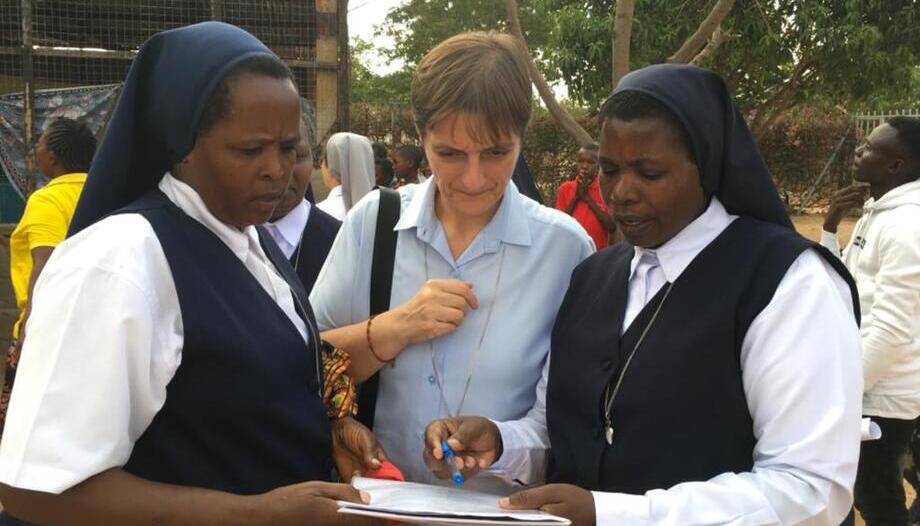 "The Pope asks us to live our religious vocation with depth and joy."
"The Pope asks us to live our religious vocation with depth and joy." "Consecrated life cannot fall into a false theology of merit."
"Consecrated life cannot fall into a false theology of merit." "No vocation is indifferent to us."
"No vocation is indifferent to us."Translation of the article into English
The identity of the organizations belonging to the International Union of Superiors General (UISG) is more global than ever. Nineteen hundred women's congregations of diocesan and pontifical right spread over all continents: from Europe to Asia, from the Americas to Oceania.
Since last May, the worldwide network of sisters has had a new president: Nadia Coppa, who belongs to the religious institute of the Adorers of Christ. My election was a surprise," she says. But from the beginning I put myself at the service of the objectives of the UISG. For example, to favor the connection between the various congregations, to share a common vision of consecrated life in different intercultural contexts and to promote processes of formation and promotion of life".
She will not pursue these goals alone, but will share the effort with a good team. "I will be supported by an executive council of women who have a rich missionary and ecclesial experience and that encourages me to put myself in an attitude of listening, openness and availability," adds the nun.
What challenges for the UISG do you see on the horizon?
- Firstly, to continue to develop networks among the congregations. The process has been underway for some time but, during our last plenary assembly, we felt the desire to strengthen it in formation processes and in the exchange of ideas and projects, especially in favor of the most vulnerable. Another challenge is the greater visibility of consecrated women in the Church, with participation also at the decision-making tables. This result would be the sign of a Church that broadens its vision by sharing charisms. And then there are the new challenges that come from a divided and globalized world in which our presence is certainly a presence of communion, of listening and of promoting the care and protection of life. It is a truly fascinating horizon.
With regard to the role of women in the Church, what concrete contribution can the UISG make?
- Reflection on the role of women in the Church should be encouraged. The UISG operates in a different cultural context in every nation. To do so, it needs to raise awareness about the value of women's dignity and explain how women promote the transformation of the world and the Church. Pope Francis' proposals regarding women's participation in ecclesial life were truly significant. We must continue in this process in a spirit of welcome, dialogue and common discernment.
Is there any part of the world that is currently catching your attention the most?
- My attention, and that of the UISG, is currently focused on the religious congregations of women present in Ukraine, Russia and the countries of the East, in order to support them through concrete solidarity. Today, the presence of our sisters in these territories is prophetic, because they share their lives with the people who are there at a time of great uncertainty. Our gaze is also directed towards the African nations that are living ecclesial dimensions still in need of a synodal spirit.
So, one of the dimensions of your government is listening?
- Together with the governing council of the UISG, we must begin to come together to elaborate a common vision in light of the processes that have taken place in recent years. Listening is the fundamental attitude to respond to the cry of the poor and of the earth.
What contribution is the UISG making to the synodal journey?
- Significant steps have been taken so far. The UISG has collaborated with the Union of Superiors General (Usg) ensuring, at the Holy See, active participation in moments of sharing. And we want to continue to foster similar moments among the various congregations walking and thinking together.
Was there a collective reflection on the problem of the lack of vocations that most affects Western countries?
- The number of vocations and the rising average age of sisters within our congregations are two elements of vulnerability that we discussed at the last plenary assembly. At the same time, however, we have great confidence in the new vocations. Although small in number, they have a high degree of motivation: they are available for mission and for living the Gospel radically. It is true, however, that we must reflect on new paradigms of community life and on a new way of presenting the consecrated life of women.











